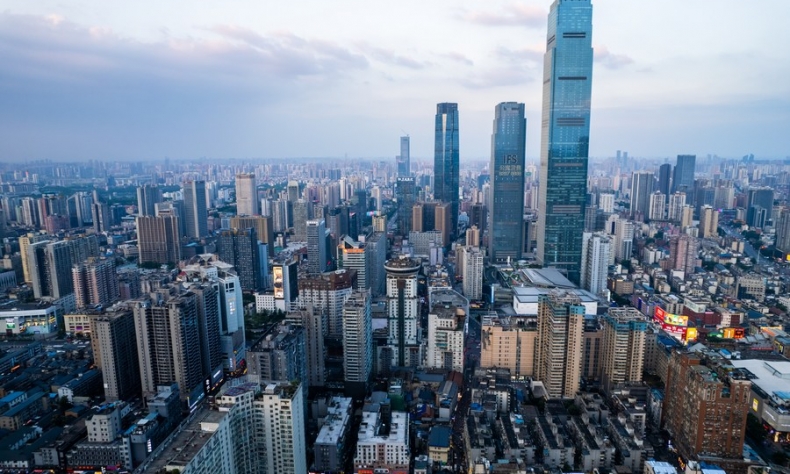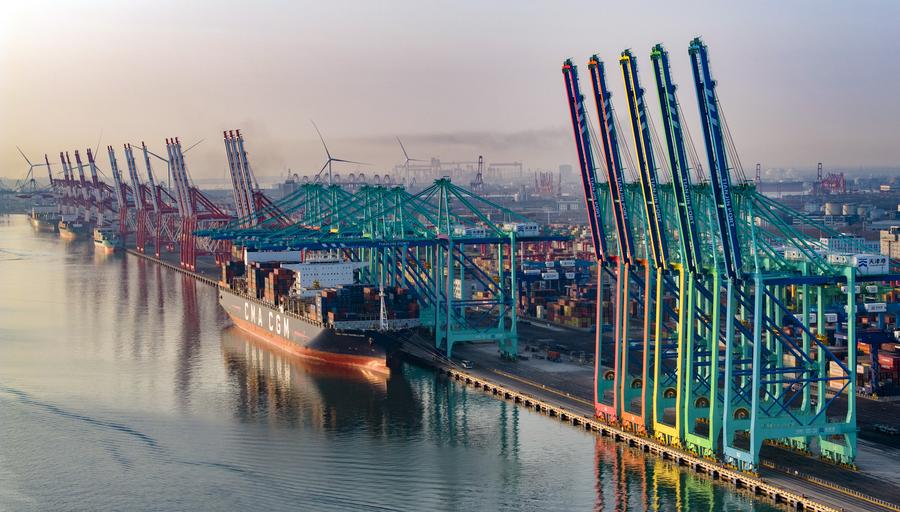Economic Policy Takes Center Stage

The ongoing reforms and the policy of opening up will further deepen, bringing positive energy to global development. The priorities set by the third plenary session will once again affirm these goals.
The outcomes of the Third Plenary Session of the 20th Communist Party of China (CPC) Central Committee, the third since its members were elected during the 20th CPC National Congress in 2022, are not just significant locally but also globally. This event, a meeting of senior officials closely followed by political and economic practitioners and observers within China and internationally, is expected to impact global economic and financial systems profoundly.
The third plenary session, already dubbed a landmark event by local and international media, introduced essential initiatives to address the risks and challenges associated with China’s medium- and long-term socioeconomic progress. It has significant precedents in the past. For example, it was at a similar event in 1978 that Chinese leader Deng Xiaoping announced the opening up of China, which remains a critical moment in Chinese history. At its third plenary session in November 2013, the 18th CPC Central Committee allowed market forces to play a “decisive” role in allocating economic resources, marking a shift in China’s economic policies.
The latest plenum is of particular significance for several vital reasons. First, China’s role in the contemporary world as the second largest economic power and the most dynamic country globally has massively increased over the past 40 years. The country fuels economic growth in Asia and worldwide. Second, the CPC’s role in shaping the nation’s affairs is becoming increasingly prominent. As the most influential political force, the Party guides the Chinese nation and determines the country’s policies, economic priorities, and social relations development. The Party sets the primary goals for the country’s growth and oversees their realization. Third, the distinctive aspect of the Chinese socioeconomic development model lies in its long-term planning, the formulation of detailed action plans by national and local governments, and monitoring their implementation. The country’s medium- and long-term development strategies are deliberated during plenary sessions.
Historically, each third plenary session has focused on economic reform, vital to China’s growth. The most recent one was also no exception. It once again confirmed and detailed the strategic direction of the country’s development along with modernization, high-quality development, and high-level opening up.

The reforms announced are a response to the rapidly changing world and the emerging problems happening at an ever-increasing pace. These unprecedented changes are driving the need for quick responses. The significance of the decisions made at the latest third plenary session shows China’s determination to overcome challenges by increasing national resolve, promoting comprehensive development, and further opening up to the outside world. Since new challenges have arisen for the country at present, making quick and effective decisions is required now more than ever.
On July 15, the National Bureau of Statistics reported that China’s economic growth in the second quarter fell short of market expectations. In particular, weak data were reported in consumption and real estate. The country’s GDP grew 4.7 percent in the second quarter compared to a year earlier, below the 5.1-percent analyst forecast in a Reuters poll and the 5.3-percent growth achieved in the first quarter. In the first half of the year, GDP grew by 5 percent annually.
Meanwhile, real estate investment fell 10.1 percent in June from a year earlier, unchanged from the same decline seen in the January-May period. With the latest statistics, analysts expected confidence building to be an essential theme at the third plenary session. However, addressing one issue may make it more challenging to address the other. Thus, the third plenary session outlined specific actions to reform the tax system, lower debt risks, promote domestic consumption, and revitalize the private sector.
The vast and motivated Chinese nation continues progressing through cooperation with other countries and communities. It provides countries in the Global South and other regions with opportunities for mutually beneficial cooperation and instills confidence in achieving positive outcomes. The ongoing reforms and the policy of opening up will further deepen, bringing positive energy to global development. The priorities set by the third plenary session will once again affirm these goals.
The author is former prime minister of Kyrgyzstan, a distinguished professor of the Belt and Road School at Beijing Normal University and author of the book Central Asia’s Economic Rebirth in the Shadow of the New Great Game (Routledge, London, 2023).
 Facebook
Facebook
 Twitter
Twitter
 Linkedin
Linkedin
 Google +
Google +










